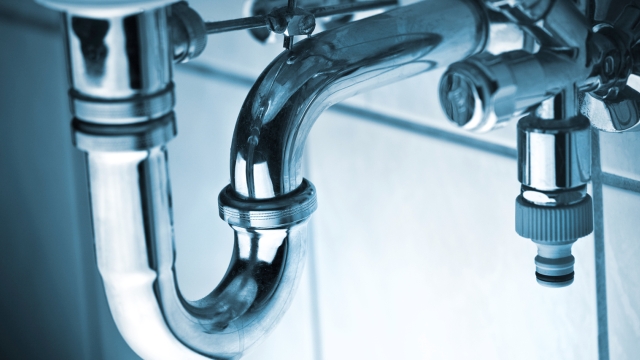Are you tired of dealing with pesky plumbing problems in your home? Well, fret no more! In this comprehensive guide, we are here to provide you with the expert advice you need to tackle any plumbing issue that arises. Whether you’re faced with a leaky faucet, a clogged drain, or a burst pipe, we’ve got you covered with practical tips and tricks to help you become your own plumbing hero.
Plumbing problems can be a major source of stress for homeowners, but with the right knowledge and tools, you’ll be well-equipped to handle any situation that comes your way. From understanding the basics of your plumbing system to troubleshooting common problems, our guide will walk you through every step, ensuring you feel confident and empowered to take charge of your plumbing woes.
So, if you’re ready to bid farewell to the constant dripping, mysterious clogs, and costly emergency plumber visits, join us as we delve into the world of plumbing and equip you with the expert advice you need for a smooth-running home. Let’s dive in and be prepared to conquer those plumbing challenges once and for all!
Common Plumbing Issues
-
Leaky Faucets: One of the most frequent plumbing problems homeowners face is a leaky faucet. This can be quite frustrating, not to mention the wasted water and the annoying dripping sound. Typically, a leaky faucet is caused by a worn-out washer or a broken seal. Thankfully, fixing this issue is relatively simple and can often be done without professional help.
-
Clogged Drains: Another common plumbing problem is a clogged drain. Whether it’s in the kitchen sink, bathroom sink, or shower, a clogged drain can disrupt your daily routine. This problem is usually caused by a buildup of food debris, hair, grease, or other foreign objects. To unclog a drain, you can try using a plunger or a drain snake. However, if these methods don’t work, it may be necessary to call a plumber.
-
Running Toilets: A running toilet is not only wasteful but can also result in a higher water bill. This issue is often caused by a malfunctioning flapper valve or a faulty fill valve. Fortunately, fixing a running toilet is usually a straightforward task. In some cases, adjusting the water level or replacing a worn-out component may be all that’s needed to resolve the problem.
Remember, while these are common plumbing issues that can often be fixed by homeowners, it’s essential to know your limits and seek professional help when necessary. Plumbing problems can vary in complexity, and attempting more complex repairs without the proper knowledge or experience could potentially lead to further damage.
How to Fix Basic Plumbing Problems
In this section, we will guide you through some common plumbing problems and provide expert advice on how to fix them. Whether you’re dealing with a clogged drain, a leaky faucet, or a running toilet, these tips will help you address the issue and get your plumbing back in working order.

Clogged Drains: One of the most frequent plumbing issues is a clogged drain. To tackle this problem, start by using a plunger. Place the plunger over the drain and firmly push and pull to create suction. Repeat this process a few times, and the clog may start to loosen. If the plunger doesn’t do the trick, you can try using a drain snake. Insert the snake into the drain and rotate it to break up the blockage. Once the clog has been cleared, run hot water to ensure everything is flowing smoothly again.
-
Leaky Faucets: A leaky faucet can waste a significant amount of water and can be an irritating problem. To fix this issue, start by turning off the water supply to the faucet. Next, unscrew the handle and remove it to access the cartridge or stem. Inspect it for any signs of damage or wear and tear. If necessary, replace the faulty parts with new ones from your local hardware store. Once you’ve replaced the components, reassemble the faucet and turn the water supply back on. The leak should now be resolved.
-
Running Toilets: A running toilet can be both annoying and wasteful. To fix this problem, start by removing the toilet tank lid and inspect the flapper valve. Ensure that it is properly sealing and not allowing water to flow continuously into the bowl. If the flapper is worn or damaged, replace it with a new one. You should also check the float and adjust it if necessary, as an incorrectly positioned float can cause the toilet to run. Once you’ve made the necessary adjustments or replacements, the toilet should stop running.
By following these simple steps, you can resolve many basic plumbing problems on your own. However, if you encounter more complex issues or are unsure about any aspect of the repair, it’s always best to consult a professional plumber.
When to Call a Professional Plumber
-
Identifying Complex Issues
Plumbing Service Directory
Some plumbing problems require the expertise of a professional plumber due to their complexity. Issues such as major leaks in the pipes, water pressure inconsistencies, or sewer line blockages can be challenging to diagnose and repair without the necessary knowledge and tools. In these cases, it is best to call in a professional who can accurately assess the situation and provide effective solutions. -
Concerns about Safety
Plumbing systems involve various components that can pose safety risks if mishandled. For example, dealing with gas lines, water heaters, or sewage backups requires specific expertise and precautions to ensure the safety of yourself and your home. Professional plumbers are trained to work with these potentially hazardous situations, minimizing the risks and ensuring a safe resolution.
-
Saving Time and Money
While DIY plumbing repairs may seem tempting to save a few dollars, they can end up costing more in the long run if not done correctly. Minor issues that are not properly addressed can escalate into larger, more expensive problems over time. By hiring a professional plumber, you can have peace of mind knowing that the job will be done right the first time, potentially saving you both time and money in the future.
Remember, while it’s great to have some basic plumbing knowledge, not all problems can be solved without the help of a professional. When in doubt or faced with a complicated plumbing issue, it’s best to reach out to an expert who can provide the necessary skills and experience to resolve the problem effectively.
